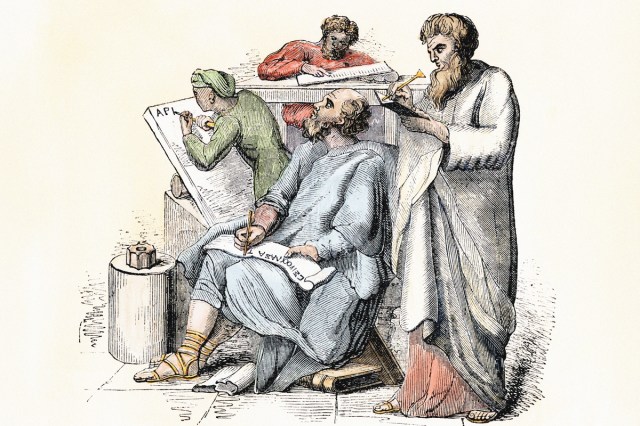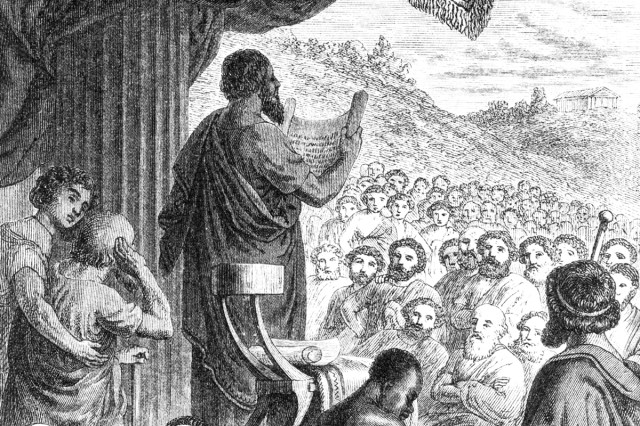Why Do We Call It ‘History’?
The modern English word “history” comes partly from the Latin historia and partly from the French storie (or estoire), but those terms both trace their roots back to the same place. Not coincidentally, that place is one of the bedrocks of Western civilization: ancient Greece.

Going back about as far as we can, the word “history” can be traced to the ancient Greek verb οἶδα (heda), meaning “to know.” From there, the Greek ἵστωρ (histōr) arose, which had a variety of meanings depending on the context. As a noun, it could mean “wise man,” “judge,” “witness,” or simply “one who knows.” As an adjective, it meant “knowing” or “learned.”
The Greek word historia evolved from that histōr root. It originally meant “a learning or knowing by inquiry,” “an account of one’s inquiries,” or simply “inquiry” or “narrative.” That word was borrowed into Latin (also as historia), where it meant “narrative of past events, account, tale, story.” Interestingly, although historia was borrowed from Latin into Old English as stær (or ster or steor) to mean “history, narrative, story,” our modern English word “story” comes from the French storie or estoire.

















